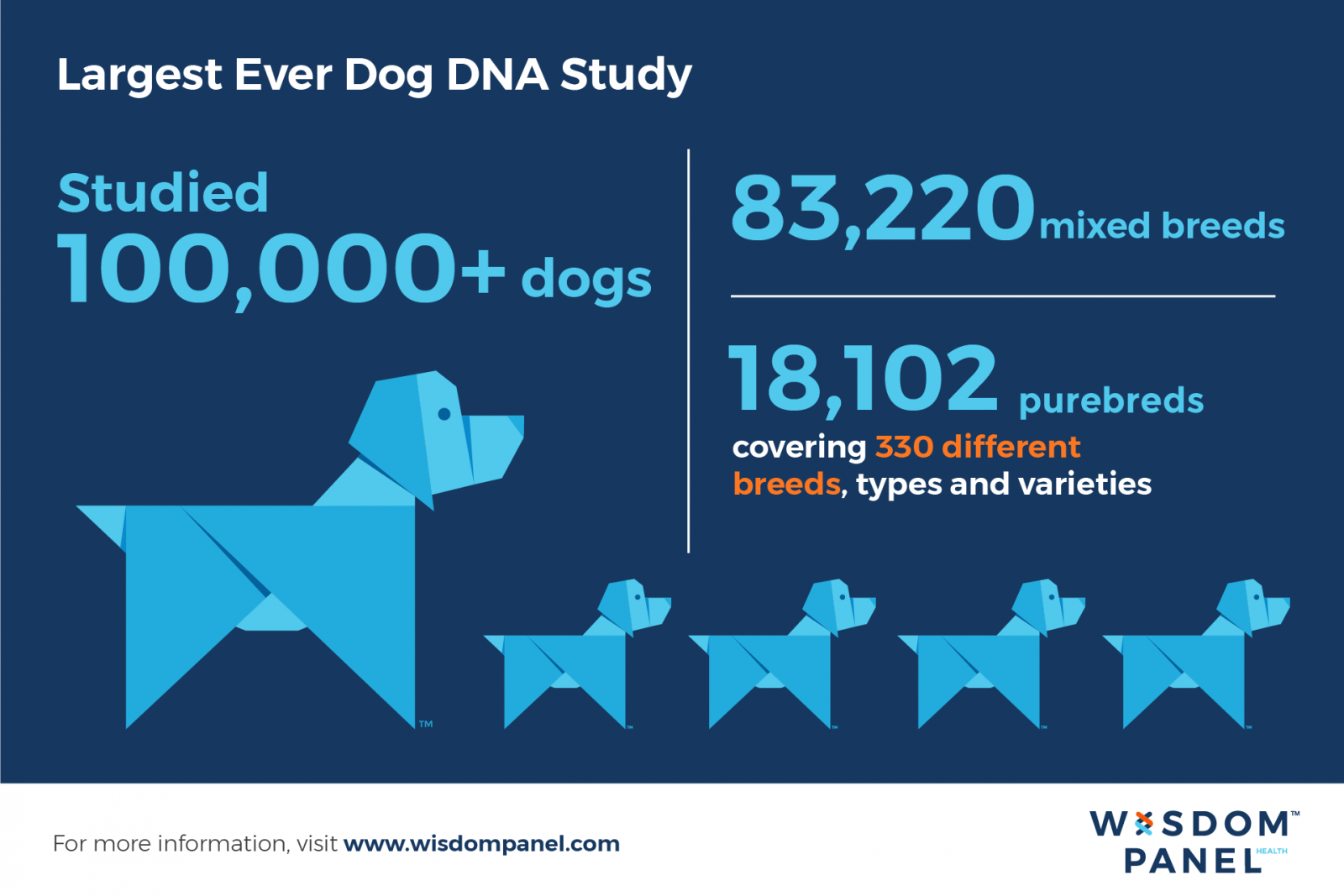Online Database of Canine Inherited Genetic Disorders Now Available
A new study on the genetic epidemiology of canine disease risk variants has enabled the creation of an online database of inherited genetic disorders.

There has been a longstanding perception that mixed-breed dogs are less likely than purebred dogs to develop disease. New research published in PLOS Genetics proves that this is the case, but with one important caveat—mixed-breed dogs can still develop genetic disorders.
In the largest canine genetics study to date, researchers from Wisdom Health and Genoscoper Laboratories examined the prevalence of 152 genetic diseases in more than 100,000 mixed-breed and purebred dogs.
This study—the first of its kind to show the genetic diseases that both mixed-breed and purebred dogs are most likely to develop—has enabled the creation of My Breed Data, an online respository about inherited genetic disorders that will enable veterinary practitioners to make more informed decisions for their patients.
RELATED:
- Behavioral Differences Between Purebred and Mixed-Breed Dogs
- Put Down that Pug?
“For veterinarians to understand which disorders are common across the overall population is extremely valuable information for the future of proactive medical care,” Jonas Donner, PhD, chief scientific officer at Genoscoper, said. “Using genetic tools to further disease monitoring and eradication in different populations, can, over time, have a positive effect on both purebred and mixed-breed dogs.”
Study Design
Using a custom-designed beadchip microarray, 83,220 mixed-breed dogs and 18,102 purebred dogs representing 330 breeds were examined for 152 known disease variants, including progressive retinal atrophy, hyperuricosuria, collie eye anomaly, multidrug sensitivity, exercise-induced collapse, and von Willebrand’s disease.
“For owners, understanding for which genetic diseases their dog is at risk for can help them and their veterinarians design a personalized care and wellness program for their dog,” Dr. Donner said.

The 3 body systems found to be the most commonly affected across both purebred and mixed-breed dogs were the vision, nervous, and circulatory systems.
Study results showed that approximately 2 in 5 dogs carried at least 1 copy of a tested disease variant. Furthermore, most disease variants were shared by both mixed-breed and purebred dogs. Other key findings included the following:
- Approximately 2% of mixed-breed dogs are at risk of becoming affected and 40% are carriers for at least 1 of the diseases.
- Approximately 5% of purebred dogs are at risk of becoming affected and 28% are carriers for at least 1 of the diseases.
This means that while mixed-breed dogs are less disease-prone than purebred dogs, they are more likely than purebred dogs to be carriers of the recessive disorders studied. According to the study authors, this provides DNA-based evidence for hybrid vigor, or outbreeding enhancement.
“A dog carrying an inherited disorder is not a ‘bad dog,’” the study authors wrote, “but we humans responsible for breeding selections do need to make sustainable decisions avoiding inbreeding, ie, mating of dogs that are close relatives.”
Genetic Testing in Practice
Besides gaining a better understanding of genetic disease risks in certain dog breeds, this study shows that proactive management of inherited disorders through DNA testing and genetic screening can actually decrease the incidence of genetic disease in dogs. For example, the investigators believe the X-linked severe combined immunodeficiency mutation originally found in Basset hounds appears to have been eradicated, according to their study results.
The authors emphasized the need for further genetic studies to offer more insight regarding canine disease risk variants for those in the veterinary field, ultimately enabling better proactive medical care for all patients.
“It’s now clear that all dogs can benefit from genetic testing,” said Cindy Cole, DVM, PhD, DACVCP, general manager at Wisdom Health. “It’s exciting that new diagnostic tools are now available to veterinarians, breeders, and owners alike to enable them to make more informed decisions about overall care for dogs.”